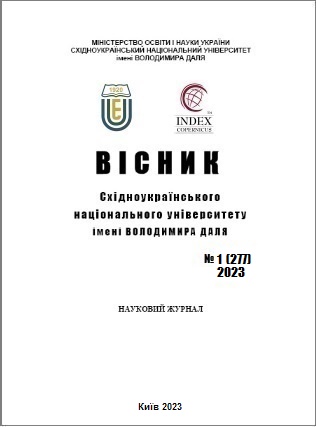Concepts and paradigms of building information systems and technologies in the field of optical metrology
DOI:
https://doi.org/10.33216/1998-7927-2023-277-1-20-25Keywords:
сoncept, paradigm, information and control system, decision support information technology, optical metrologyAbstract
The research has been conducted to establish the methodological foundations for building information and control systems and information technologies in technical fields of knowledge, including optical metrology. The key principles of constructing information and control systems have been defined. Paradigms have been identified to consider various aspects of activity, specifically in the field of optical metrology. A flexible paradigm has been added to the paradigms of the technical direction, enabling quick adaptation to changes and failures, while in the management direction, a modeled paradigm has been introduced to enhance the capabilities of artificial intelligence for data analysis and forecasting. The concept of an information and control system in the technical field, related to physical measurements, may include four requirements and principles.Requirement: Ensuring accuracy and reliability of parameter measurements. Principle: Utilizing high-precision sensors and calibration to ensure measurement accuracy, as well as implementing error detection and correction mechanisms to ensure measurement reliability. Requirement: Speed of processing and analysis of technical and management data. Principle: Employing efficient data processing algorithms and optimizing hardware to achieve data processing speed. Requirement: User-friendliness, simplicity, and accessibility for users. Principle: Developing an intuitive interface and facilitating convenient access to the system's functionality, including user training and documentation support to enhance system usability. Requirement: Data protection and security. Principle: Implementing encryption mechanisms, access control, and data backup to ensure confidentiality, integrity, and availability of data. These requirements and principles contribute to the effective and reliable operation of an information system in metrology, improving the quality of measurements, data analysis, and process management in this field. Additionally, a comprehensive concept has been developed for building an information technology decision support system in optical metrology, encompassing expert groups, knowledge bases, data analysis, modeling and simulation, monitoring and tracking, communication support, and continuous maintenance.
References
1. Хорошун, Г., А. Рязанцев, О. Рязанцев. Методологія прийняття рішення щодо оцінки відповідності оптичної лабораторії технічним вимогам. Вісник східноукраїнського національного університету імені Володимира Даля, вип. 8(264), 2021, с. 10-14
2. Кулаков Д.В., Хорошун Г.М. Система підтримки прийняття рішень в задачах оцінки якості зображення. ІТ-Ідея – 2022: збірник науково-практичних праць. – Київ: Вид-во Східноукр. Ун-ту ім. В. Даля, 2022. – с. 23-24.
3. Дяченко С., Седінкін О., Сокирко Д., Хорошун Г.М. Система підтримки прийняття рішень в задачах вибору програмного забезпечення. ІТ-Ідея – 2022: збірник науково-практичних праць. – Київ: Вид-во Східноукр. Ун-ту ім. В. Даля, 2022. – с. 16-17.
4. Хорошун Г. М., Сітченко О. В., Рязанцев О. І., Барбарук В. М. Управління проектом «оптична лабораторія» за допомогою програмного забезпечення GanttProject / Сучасні технології в науці та освіті : колективна монографія / під. ред. О. Б. Целіщева, Г. О. Татарченко, Г. М. Хорошун. — Сєвєродонецьк : вид-во СНУ ім. В. Даля, 2021. — с. 150-155.
5. Хорошун, Г., О. Рязанцев, М. Коверга, С. Покришка. Моделі машинного навчання для передбачення кількості захворілих на Сovid-19 в Україні та Індії, Сучасні інформаційні системи, 2022, 6 (2), с.16-20
6. Хорошун, Г., М. Черпицький, О. Рязанцев, М. Кластеризація та аномальність даних індексу волатильності фондового ринку США, Сучасні інформаційні системи, 2023, 7 (2), с.9-15
7. ISO/IEC 42010:2011 - Systems and software engineering - Architecture description
8. ISO/IEC 12207:2017 - Systems and software engineering - Software life cycle processes
9. ISO/IEC 25010:2011 - Systems and software engineering - Systems and software Quality Requirements and Evaluation (SQuaRE) - System and software quality models
10. Andrew Wolf, Machine Learning Simplified:A gentle introduction to supervised learning, 2022, p. 199 URL:https://www.goodreads.com/book/show/60297347-machine-learning-simplified

